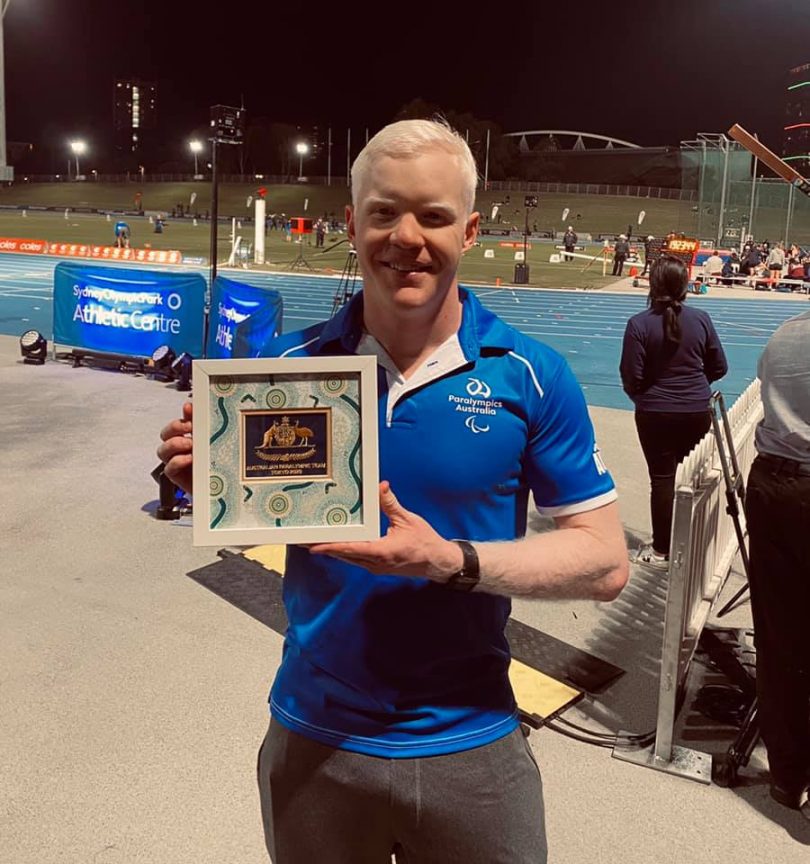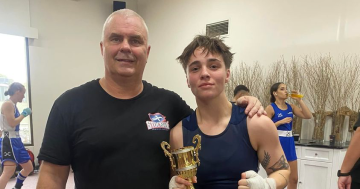
Canberra sprinter Chad Perris was one of the Paralympians we loved to cheer on. Photo: Facebook.
The Paralympics has always provided an ocean of remarkable stories. As with the Olympics, we got to know a little about these extraordinary athletes and their lives through our television screens.
It was certainly the case with characters such as swimmer Grant ‘Scooter’ Patterson. Such was the response to his personality that he suggested he might need to hire a receptionist to deal with all of the requests he was getting.
Every athlete taking part in the Paralympics has a story to tell. But for each of the athletes, it is the focus, the training, the effort and the determination to strive to be the very best in their chosen sport that brought them to that world stage.
There were many stories about athletes overcoming adversity to compete, but at the Tokyo Paralympics, there was a subtle difference in the language used by commentators and journalists that demonstrated a shift in focus.
While the backstories were extraordinary, the high performance took centre stage.
Along with numerous other commentators and journalists over the years, I am guilty of having focused too much on athlete disability rather than the incredible ability. And over the years, I sensed frustration from the Paralympic athletes, keen to progress the conversation beyond a focus on disability.
This has been an issue with the media’s coverage of women’s sport compared to the coverage of men’s sports over the years. The shift in the language associated with women’s sport has to move from the ‘happy to be playing the sport they love’ angle to one where skill takes centre stage.
At these Paralympics, this shift appears to have been made. There was a focus on the ability, grit and technique of the athletes within their chosen sport.
A case in point was the coverage of mixed wheelchair rugby where there was significant discussion about the tactics opposition teams would use to combat the skills of Riley Batt.
Another was in the incredible sport of Boccia, which requires considerable and complex skills, concentration at the highest level and the ability to think strategically.
Maddison De Rosario also demonstrated tactics, skill, incredible physical fitness, and an extreme will to win the wheelchair marathon. During the coverage of the marathon, there was little talk of how she ended up in a wheelchair, it was more about her performance and her race plan. Maddison’s victory, for mine, was the icing on the cake.
Her training, her mindset, her ability to overcome pain was telling. It was addressed by the commentators in the same way as they would for the Olympics.
When Canberra sprinter Chad Perris finished fifth in the 100 metres, and Michael Roeger finished sixth in the marathon, the heartache was there for all to see. It wasn’t a case of ‘happy to be there’, it was the fact that five years of preparation had come down to that moment.
The athletes and those involved in Paralympic sport have understood the concept of high performance for many years. And now we all seem to get it. We had a glimpse of what that means. The training, the effort, and the hours of working towards that one goal have been on display for all to see through the Tokyo Paralympic Games.













